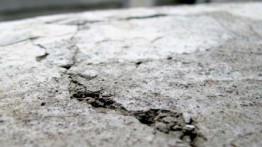Interdisciplinary Seminar: Eyal Weizman
Tuesday, February 19, 2013, 7 - 8pm

Forensic Architecture Chr. 5: The Logic of Denial
This lecture builds on Weizman's long term research into the history of forensic practices and the practice of Forensic Architecture. In this talk he will concentrate on attempts to articulate and deny truth claims in relation to war using various modes of sensing. He will also discuss new investigations undertaken by the Forensic Architecture teams in Palestine, Guatamala, Pakistan and former Yugoslavia.
Eyal Weizman is an architect, Professor of Visual Cultures and director of the Centre for Research Architecture at Goldsmiths, University of London. Since 2011 he also directs the European Research Council funded project, Forensic Architecture.
Eyal Weizman is a Robert Lehman Visiting Artist at The Cooper Union for Spring 2013.
The Interdisciplinary Seminar was designed twenty years ago to contribute to a regular and sustainable discussion on artistic practice for the students of the Cooper Union School of Art and the creative community that surrounds them. Lectures are free and open to the public.
The Spring 2013 Interdisciplinary Seminar is part of the Robert Lehman Visiting Artist Program at The Cooper Union. We are grateful for major funding support from the Robert Lehman Foundation.
Located in the Frederick P. Rose Auditorium, at 41 Cooper Square (on Third Avenue between 6th and 7th Streets)




